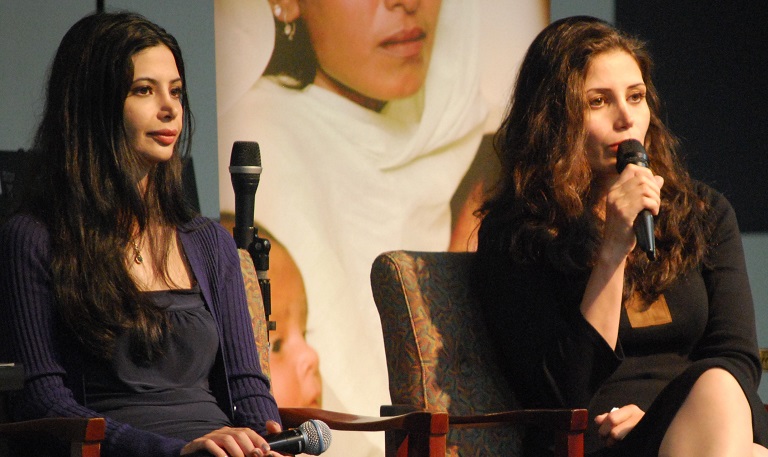
Two Iranian Christian women who once faced the threat of execution for their faith have described the conditions inside Tehran’s notorious Evin Prison, calling it “the most brutal prison in the world”.
Maryam Rostampour and Marziyeh Amirizadeh, who spent eight months there in 2009/10, now live in the US, where they were granted asylum after their release. They wrote about their experiences in a book, ‘Captive in Iran’, published in 2013.
Twenty-one Christians have been sentenced to long prison terms in Iran over the past six months, and many of them are now in Evin Prison. In a new interview with the UK’s Times newspaper, the two women explain the conditions they are likely to be experiencing.
“One day is like a year,” says 35-year-old Rostampour. “Some days you can’t breathe because you don’t know what’s going to happen to you the next day.”
It has been seven years since their release, but she says: “When people experience living in Evin Prison they will never be the same again. The stress is too much. We can’t be the same people. We can’t be as happy as before. We don’t enjoy activities like normal people because all the time we think of those who are still there.”
Rostampour and Amirizadeh, who is 38, describe how they converted to Christianity at a Christian conference in Turkey in 2005 and then turned their Tehran flat into a “house church” and set about distributing an estimated 20,000 copies of the New Testament.
“When people experience living in Evin Prison they will never be the same again. The stress is too much. We can’t be the same people. We can’t be as happy as before. We don’t enjoy activities like normal people because all the time we think of those who are still there.”
Following their arrest in 2009, they were transferred to a women’s cell in Evin Prison, where they were forced to sleep on the floor in a room with 30-40 other prisoners. They say there was just one small window with no view and that the temperature was sweltering in summer and freezing in winter. The lights were kept on all night, while a television incessantly blasted out state propaganda.
They say they were denied medical treatment because of their faith and that they were seen as “dirty infidels”.
“They treated us like animals,” Amirizadeh says.
Amnesty International has criticised Iran for its “cruel” denial of medical care in its prisons, referencing the case of another Christian woman, Maryam Naghash Zargaran, who was released from Evin Prison in August after four years there.
Zargaran had undertaken two hunger strikes to protest against being denied access to the medical treatment she required for long-standing health issues. She was allowed to leave prison temporarily to receive treatment, but each time forced to return before it could be completed. She then had her sentence extended by six weeks to make up for the time she had spent outside prison.
Forced confessions
Rostampour and Amirizadeh also spent 40 days in an interrogation building, where they were asked repeatedly to deny their Christian faith, while interrogators demanded the names of the people who had attended their “house church” and asked them to sign forced confessions.
“If you don’t give us the information we need, we’ll beat you till you vomit blood,” they were told.
Such demands for confessions are often reported by Christians in Iranian prisons, such as in the cases of Mohammed Ali Torabi, 39, who was recently released on bail, and Abdol-Ali Pourmand, who remains in prison in Ahvaz, capital of Iran’s western Khuzestan province.
“If a prisoner’s case got attention, they stopped torturing or raping them because they knew the world was watching. We heard of many cases of prisoners who had no voice outside, and many things happened to them.”
Rostampour and Amirizadeh say their interrogators often cited the examples of well-known Christian pastors who had been hanged.
“We can do anything to you and nobody can stop us,” they were told. “Here we are the law and we can do whatever we want.”
The women say the international attention given to their case helped secure their release and also helped them survive their time in jail.
“If a prisoner’s case got attention, they stopped torturing or raping them because they knew the world was watching,” Amirizadeh says. “We heard of many cases of prisoners who had no voice outside, and many things happened to them.”
Following their release, the two women say they felt they “could not live in Iran any more as Christians”, having been warned by their interrogators they may one day suffer an “accident”.
But even so, Rostampour says: “Iran is our country. It’s our home. We miss the streets and the mountains. We have family and friends there. We’re heartbroken for our country and pray that one day our country can be free from this brutal regime.”